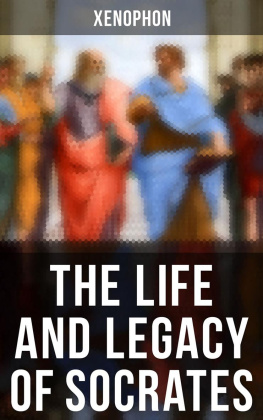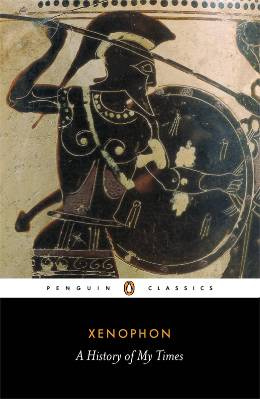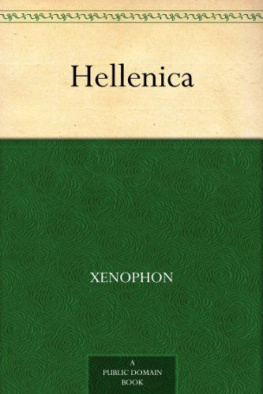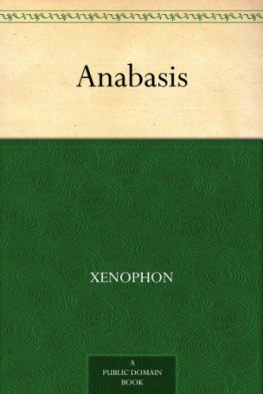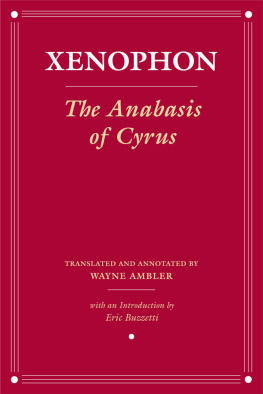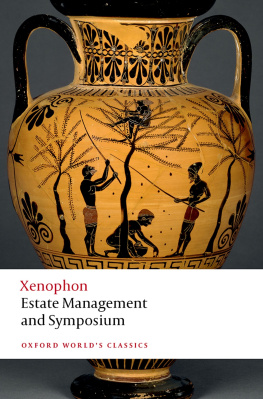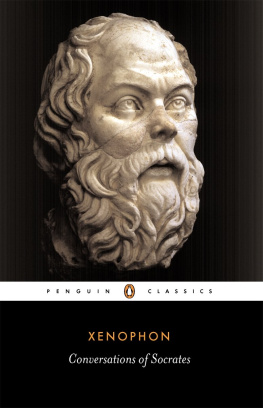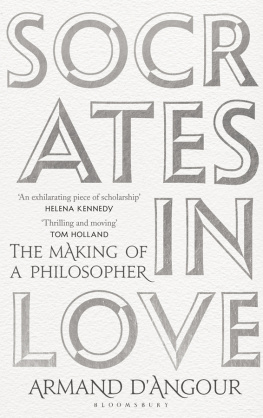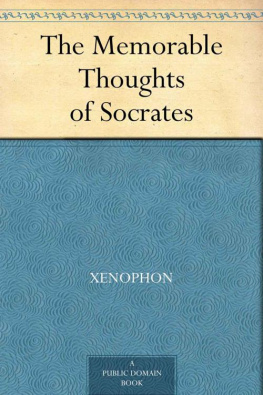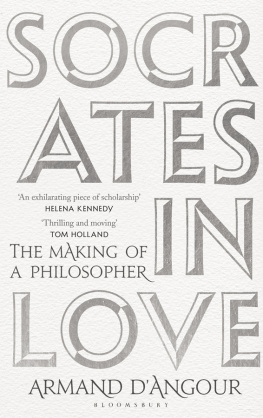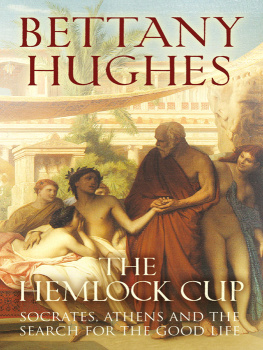The Life of Socrates
Socrates was born at Athens 468 B. C. His father, Sophroniscus, was a sculptor of humble reputation and in moderate circumstances. He educated his son to his own profession, in which it appears that the latter made considerable proficiency. He did not, however, devote himself wholly to this pursuit, but spent a large share of his time in reading the works of philosophers. Crito, an intimate friend, supplied him with money to pay the masters who taught him various accomplishments, and he became an auditor of most of the great philosophers who visited Athens, during his youth. By these means, he received the best education which an Athenian youth could command in those days.
In the early part of his life, he wrought at his trade, so far as to earn a decent subsistence. Receiving a small property at his father's death, when he was about thirty years of age, he devoted himself entirely to philosophical pursuits. His habits were simple and economical; his dress was coarse, and he seldom wore shoes. By his frugality, he was thus able to live without labor, and yet without being dependent upon others.
With regard to his public life, it appears that he served his country faithfully as a soldier, according to the duty of every Athenian citizen. He took part in three campaigns, displaying the greatest hardihood and valor. He endured, without repining, hunger and thirst, heat and cold. In a skirmish with the enemy, his pupil, Alcibiades, fell wounded in the midst of the enemy. Socrates rescued him and carried him off, for which the civic crown was awarded as the prize of valor. This reward, however, he transferred to Alcibiades. In another campaign he saved the life of his pupil, Xenophon, whom he carried from the field on his shoulders, fighting his way as he went.
At the age of sixty-five, he became a member of the council of Five Hundred, at Athens. He rose also to the dignity of president of that body; by virtue of which office, he for one day managed the popular assemblies and kept the key of the citadel and treasury. Ten naval officers had been accused of misconduct, because, after the battle of Arginus, they had omitted the sacred duty of burying the slain, in consequence of a violent storm. Their enemies, finding the people disposed to acquit them procured by intrigue, the prorogation of several assemblies. A new assembly was held on the day when Socrates was president; and the citizens, instigated by bad men, violently demanded that sentence of death should be pronounced on all the accused at once, contrary to law. But the menaces of violence were unable to bend the inflexible justice of Socrates, and he was able afterwards to declare, on his own trial, that ten innocent men had been saved by his influence.
When Socrates formed the resolution of devoting himself to the pursuit of divine and human knowledge, the sophists, a set of arrogant philosophers, were perverting the heads and corrupting the hearts of the Grecian youth. He therefore put himself in opposition to these false guides, and went about endeavoring to instruct everybody in a wiser and better philosophy than that which prevailed. He was, in fact, an instructor of the people; and, believing himself an ambassador of God, he was occupied from the dawn of day in seeking persons whom he might teach either what is important to mankind in general, or the private circumstances of individuals. He went to the public assemblies and the most crowded streets, or entered the workshops of mechanics and artists, and conversed with the people on religious duties, on their social and political relations; on all subjects, indeed, relating to morals, and even on agriculture, war, and the arts. He endeavored to remove prevailing prejudices and errors, and to substitute right principles; to awaken their better genius in the minds of his hearers; to encourage and console them; to enlighten and improve mankind, and make them really happy.
It is manifest that such a course must have been attended with great difficulties. But the serenity of Socrates was undisturbed; he was always perfectly cheerful in appearance and conversation. In the market-place and at home, among people and in the society of those whom love of truth and virtue connected more closely with him, he was always the same. It cannot be doubted that a happy physical and mental temperament contributed to produce this equanimity. But it was, likewise, a fruit of self-discipline and the philosophy he taught. He treated his body as a servant, and inured it to every privation, so that moderation was to him an easy virtue; and he retained in old age his youthful vigor, physical and mental. He was kind as a husband and a father. Though his wife, Xantippe, was a noted shrew, he viewed her as an excellent instrument of discipline, and treated her with patience and forbearance.
Although the Greeks at this time were zealously devoted to their heathen mythology, Socrates was a sincere worshipper of the Supreme Being; yet, from his care not to offend his weaker brethren, he observed, with punctilious exactness, the religious uses which antiquity and custom had consecrated. He was constantly attended by a circle of disciples, who caught from him the spirit of free inquiry, and were inspired with his zeal for the highest good, for religion, truth and virtue. The succeeding schools of philosophy in Greece are therefore justly traced back to him; and he is to be regarded as the master who gave philosophical investigation among the Greeks its highest direction. Among his most distinguished disciples were Alcibiades, Crito, Xenophon, Antisthenes, Aristippus, Phdon, schines, Cebes, Euclid, and Plato. From the detached accounts given us by Xenophon and Plato, it appears that he instructed them in politics, rhetoric, logic, ethics, arithmetic, and geometry, though not in a systematic manner. He read with them the principal poets, and pointed out their beauties; he labored to enlighten and correct their opinions on all practical subjects, and to excite them to the study of whatever is most important to men.
To make his instructions attractive, they were delivered, not in long lectures, but in free conversations, rendered interesting by question and answer. He did not reason before, but with his disciples, and thus exercised an irresistible power over their minds. He obliged them to think for themselves, and if there was any capacity in a man, it could not fail to be excited by his conversation. This method of question and answer is called the Socratic method. The fragments of his conversations, preserved by Xenophon, often leave us unsatisfied; Plato alone has transmitted to us the genuine spirit of this method; and he was therefore viewed by the ancients as the only fountain of the Socratic philosophy,a fact which has been too much disregarded by modern writers.
Socrates fell a victim to the spirit of bigotry, which has sacrificed so many persons, who were in advance of the age. The document containing the accusation against him was lodged in the Temple of Cybele, as late as the second century of the Christian era. The following is a translation:"Melitus, son of Melitus, accuses Socrates, son of Sophroniscus, of being guilty of denying the existence of the gods of the republic, making innovations in the religion of the Greeks, and of corrupting the Athenian youth. Penalty,death."



